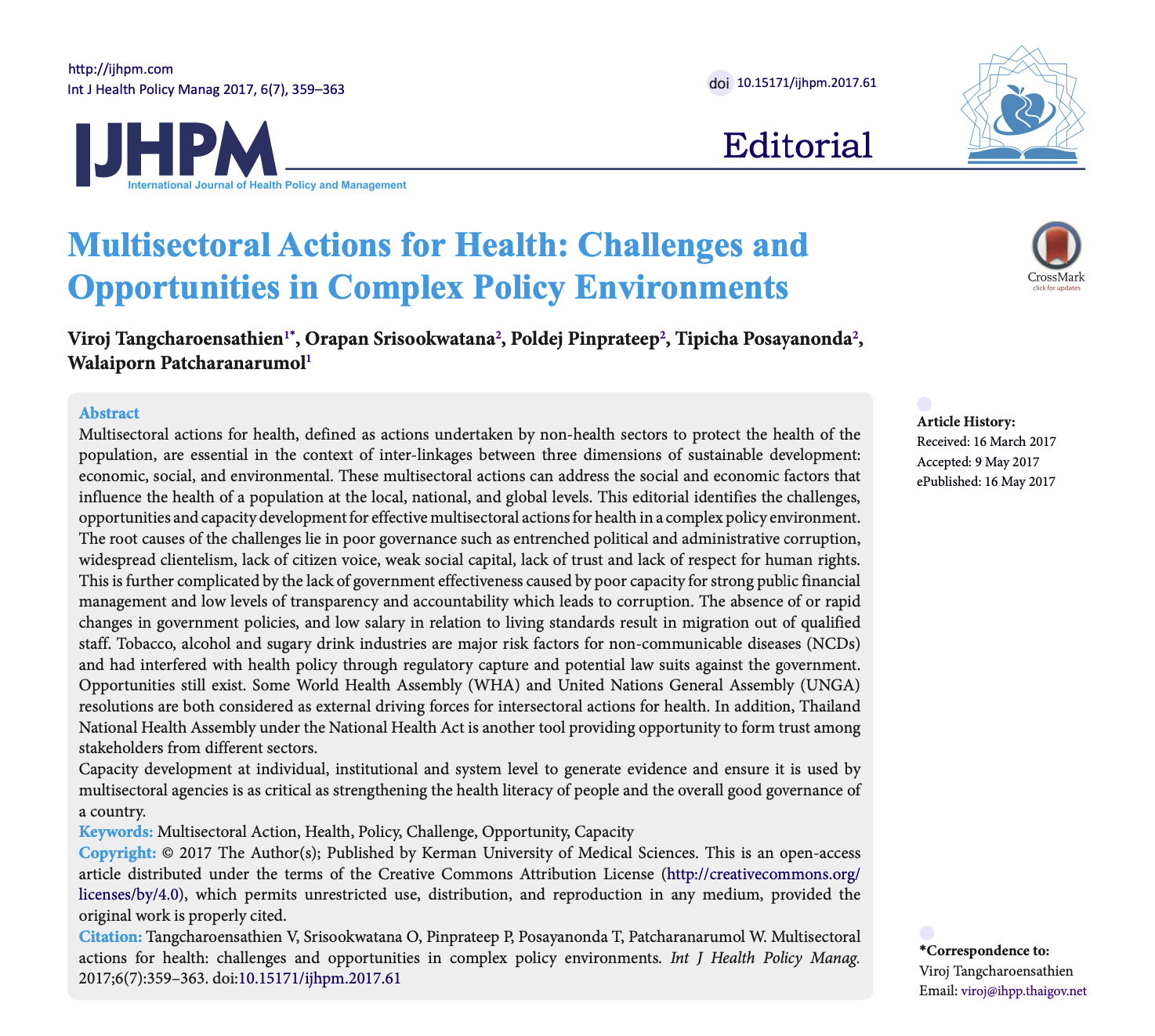Global Allergy & Airways Patient Platform
Bronchiectasis Educational Flyers
Guide
05 Feb 2026
International Journal of Health Policy and Management
16 Apr 2017

Multisectoral actions for health, defined as actions undertaken by non-health sectors to protect the health of the population, are essential in the context of inter-linkages between three dimensions of sustainable development: economic, social, and environmental. These multisectoral actions can address the social and economic factors that influence the health of a population at the local, national, and global levels. This editorial identifies the challenges, opportunities and capacity development for effective multisectoral actions for health in a complex policy environment. The root causes of the challenges lie in poor governance such as entrenched political and administrative corruption, widespread clientelism, lack of citizen voice, weak social capital, lack of trust and lack of respect for human rights. This is further complicated by the lack of government effectiveness caused by poor capacity for strong public financial management and low levels of transparency and accountability which leads to corruption. The absence of or rapid changes in government policies, and low salary in relation to living standards result in migration out of qualified staff. Tobacco, alcohol and sugary drink industries are major risk factors for non-communicable diseases (NCDs) and had interfered with health policy through regulatory capture and potential law suits against the government. Opportunities still exist. Some World Health Assembly (WHA) and United Nations General Assembly (UNGA) resolutions are both considered as external driving forces for intersectoral actions for health. In addition, Thailand National Health Assembly under the National Health Act is another tool providing opportunity to form trust among stakeholders from different sectors. Capacity development at individual, institutional and system level to generate evidence and ensure it is used by multisectoral agencies is as critical as strengthening the health literacy of people and the overall good governance of a country.